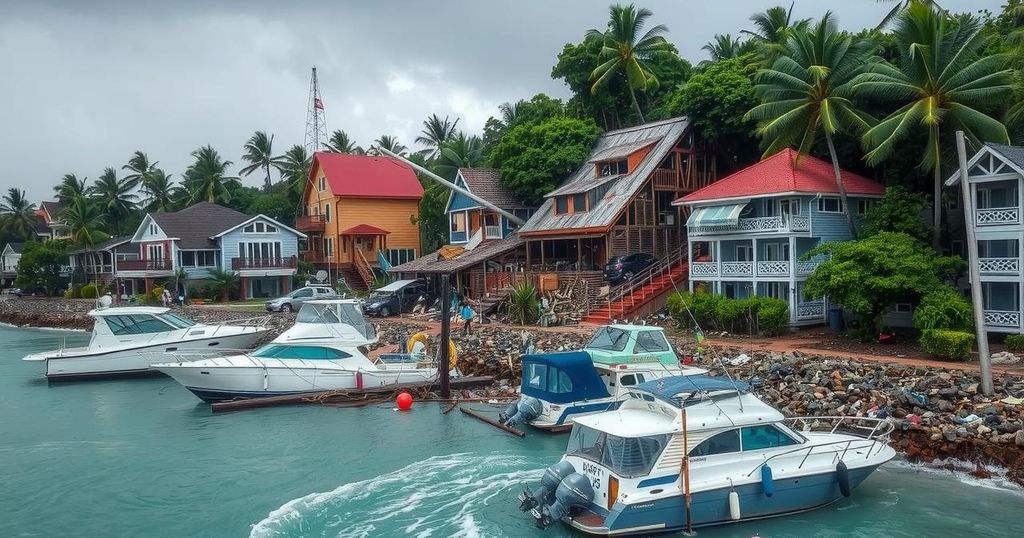Cyclone Chido has wreaked havoc in Mayotte, resulting in devastating conditions that have left the island’s infrastructure in ruins and caused numerous casualties. As rescue operations unfold, many residents fear the true scale of the disaster may involve hundreds or thousands of victims. The informal settlements are particularly affected, highlighting the social challenges facing Mayotte’s vulnerable populations.
Mayotte has been severely impacted by Cyclone Chido, which struck the French territory on December 15, causing unprecedented destruction reminiscent of an atomic bomb explosion. Reports indicate that the powerful storm, categorized as a Level 4 cyclone, brought winds exceeding 220 kilometers per hour and created catastrophic conditions across the archipelago. Many residents have recounted harrowing accounts of devastation, and while the official death count stands at 14, local authorities anticipate that it could soar into the hundreds or even thousands due to the extensive damage and difficulties in search and rescue operations.
The cyclone has obliterated numerous neighborhoods, destroyed infrastructure such as hospitals and schools, and incapacitated electrical grids. This damage has particularly affected the informal settlements housing a large number of undocumented migrants from the surrounding Comoros and Madagascar, exacerbating an already dire humanitarian situation. Reports from eyewitnesses describe entire neighborhoods disappearing under the storm’s fury, emphasizing the mechanical scale of this disaster and the ensuing struggle for survival amidst minimal resources. Rescue efforts are ongoing, albeit hindered by the storm’s aftermath and the precarious living conditions of many local residents.
Cyclone Chido is regarded as one of the most significant cyclones to impact Mayotte in the past 90 years. It struck with gale-force winds and torrential downpours, primarily affecting informal settlements where many undocumented migrants reside. Due to Mayotte’s isolated location approximately 5,000 miles from mainland France, the island has faced ongoing economic challenges, including unemployment and a surge in migration pressures. As a part of the European Union, it grapples with unique social issues, making the impact of natural disasters even more acute, particularly for vulnerable populations.
In summary, Cyclone Chido has left Mayotte in a state of devastation, with reports of extensive damage and tragic loss of life. The disaster has primarily affected the poorest communities on the island, further complicating existing socio-economic tensions. As rescue operations continue amid infrastructure breakdowns, the true toll of this catastrophe may only become apparent in the days ahead. The effects of climate change and its influence on tropical cyclones emphasize the urgent need for comprehensive disaster preparedness and response strategies in vulnerable regions.
Original Source: www.accuweather.com






